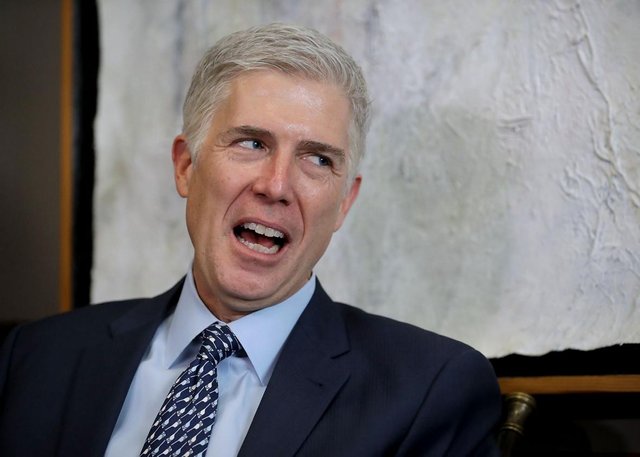Supreme Court Decides 5-4 That Donald Trump Can Withhold Documents From DACA Case
A 5-4 decision from the Supreme Court today protects Donald Trump and the government from revealing information that appears to be required under law for a court to decide on changes in the DACA or Deferred Action for Childhood Arrivals program.
The decision came down in an "extraordinary" Order on appeal from a lower court while the case was pending. The five Republican appointees all agreed to the order, including Neil Gorsuch.
The other four signed onto a dissent written by Stephen Breyer. They disagree that Donald Trump can select which documents the court gets to see and hold back others.
Highlights below.

HIGHLIGHTS
The lower court ordered that Donald Trump turn over documents. Donald Trump appealed the decision:
After the Government announced its decision to terminate DACA, respondents filed suit in the U. S. District
Court for the Northern District of California to challenge the Government's termination of the program under the Administrative Procedure Act (APA) and on other grounds. The merits of that challenge have not yet been
addressed by the District Court, and they are not before us. But the Government has filed a petition for a writ of mandamus in this Court to challenge the District Court's order that it provide additional documents to complete the administrative record concerning the Government's decision to terminate DACA.
The appeal was a "drastic and extraordinary" emergency action:
A writ of mandamus is 'a 'drastic and extraordinary'remedy 'reserved for really extraordinary causes.' "
... In my view, the Government's arguments do not come close to carrying the heavy burden that the Government bears in seeking such extraordinary relief. With respect, I therefore dissent from the Court's decision to grant a stay pending further consideration of the Government's petition for a writ of mandamus.
Donald Trump administration gets to cherry-pick the documents it wants to turn over.
The Government thus contends that review of its decision terminating DACA must be based exclusively on the documents that the Government itself unilaterally selected for submission to the District Court. I am not aware of any precedent supporting the Government's position.
General administrative law says the government is required to turn over "the whole record":
The APA is clear that a court reviewing agency action must review "the whole record " to determine whether that
action is lawful. 5 U. S. C. §706. The basic question here is what constitutes 'the whole record " that the court must
review. We held in Citizens to Preserve Overton Park, Inc. v. Volpe ... that the 'whole record" means 'the full administrative record that was before the Secretary at the time he made his decision."
Never before has the Supreme Court agreed to hold back documents in a case like this:
Neither this Court nor the lower courts has ever read Overton Park to limit the "full administrative record" to those materials that the agency unilaterally decides should be considered by the reviewing court.
Judicial review "cannot function" without the whole record:
Indeed, judicial review cannot function if the agency is permitted to decide unilaterally what documents it submits to the reviewing court as the administrative record.Effective review depends upon the administrative record containing all relevant materials presented to the agency,including not only materials supportive of the government's decision but also materials contrary to the government's decision.
Finally, there is no precedent to support withholding the documents:
I am not aware of any precedent supporting the Government's position.
The full decision in PDF form is here. https://www.supremecourt.gov/opinions/17pdf/17-801_2c83.pdf
UPDATE: The next day, the Trump FCC refused to turn over documents to the Net Neutrality investigation:
FCC Refuses to Turn Over Records to NY Attorney General in Net Neutrality Probe
WASHINGTON — The FCC is declining New York Attorney General Eric Schneiderman’s request to turn over records related to the agency’s net neutrality proceeding, citing concerns over privacy and security.
The FCC’s general counsel, in a letter to Schneiderman, also dismissed his concerns that the volume of fake comments or those made with stolen identities have “corrupted” the rule-making process, and its Dec. 14 vote on Chairman Ajit Pai’s proposal to repeal existing net neutrality rules should be delayed.
Hi! I am a robot. I just upvoted you! I found similar content that readers might be interested in:
https://www.supremecourt.gov/opinions/17pdf/17-801_2c83.pdf
@originalworks
The @OriginalWorks bot has determined this post by @merrickgarland to be original material and upvoted(1.5%) it!
To call @OriginalWorks, simply reply to any post with @originalworks or !originalworks in your message!